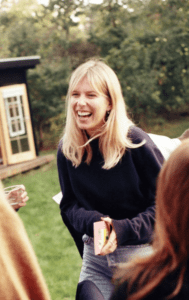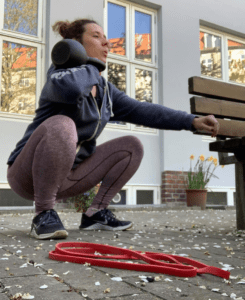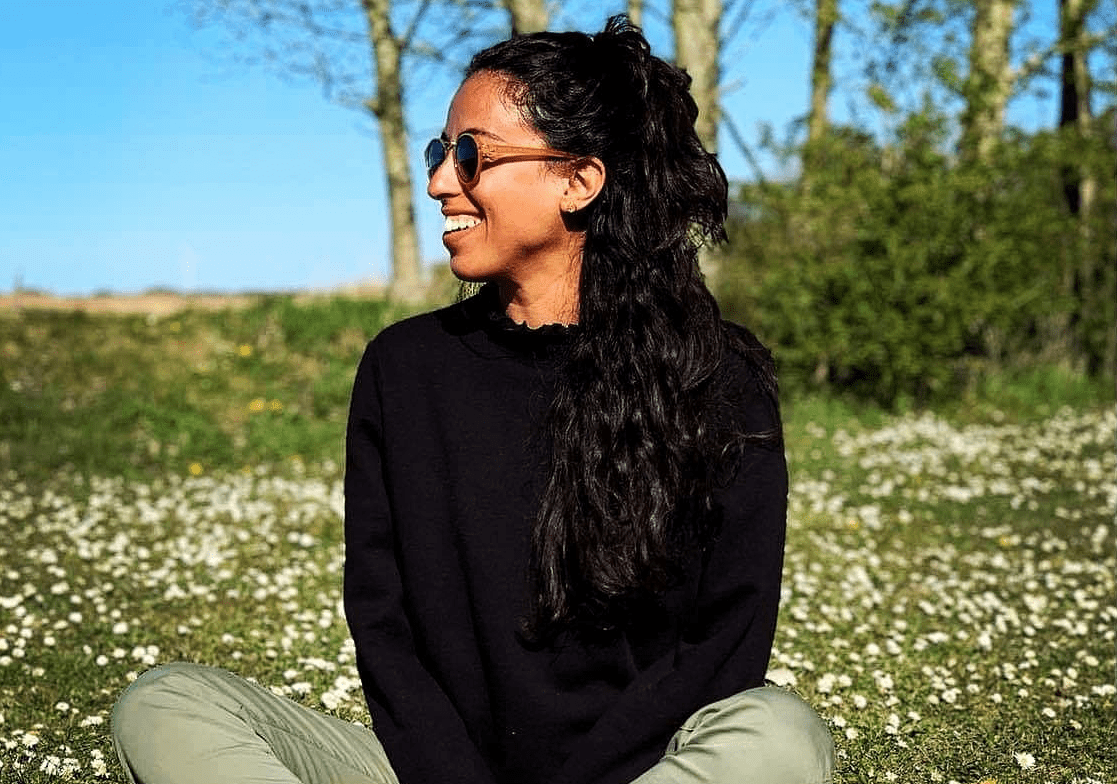All over the world women are longing for what has been taken away from them during the coronavirus quarantine.
It’s almost like they’ve been robbed of part of their personality, whether it’s dinners with the girls, weekend getaways with the family, making plans for the future, being pampered, gym classes or simply being able to express themselves through long, heartfelt hugs.
Physically challenging
But in their absence women have been transformed as they look for new alternatives. For many, it feels like time has slowed down, even stopped, and they are stuck in between.
With so many windows in their schedules, they finally have the freedom to do the things they have always wanted to do.
And also spiritually
At the same time it isn’t easy adjusting to a situation that came so abruptly. It is nerve-wracking, and it has left them amid great uncertainty.
The up-side is that they have more time to reflect on their lives and realise what they have been taking for granted.
Gender balance
In the last issue we were told what men have been missing during the quarantine.
To balance it out we are bringing the voices of the city’s women to the forefront to find out what they miss, what they don’t miss, and what they’ve learned.
PLANNING

All women are natural-born planners and during this lockdown they have realised what a big part planning plays in their lives and how much they yearn for it.
“I miss planning my future. It’s strange not knowing when I’ll next see my family in Australia, or my Mormor who is in hospital. Most of our plans for the year have gone out the window and, with all the uncertainty, it’s impossible to know what the next week, month or even year will bring,” says Pia Marsh, an Australian expat who’s half-Danish.
Grace Mason, an American engineer married to a Dane, concurs: “One of the hardest things about this virus so far has been the lack of certainty and not being able to plan for the future. Not only can I not plan something as simple as a vacation, but my job and working visa have been put on hold.”
Grace and her husband had plans to relocate to China for work in February for a couple of years. Now they do not know when that will happen: “I went from having a clear plan of what I would be doing and where I would be living, to having no idea, with my future in the hands of foreign consuls who probably don’t know what the future holds in their own country either. It’s a very scary feeling to not know if you should pack your bags or extend your lease.”
Freedom of movement has been one of the fundamental rights of EU citizens, making it possible for people to create relationships despite the distance. During the quarantine many couples haven’t been able to see each other.
“We were planning, my partner and me, to meet in London, but the flight got cancelled,” says Oumaima Dalil, a Moroccan-German living in Odense.
“The uncertainty of not knowing when we will be able to meet each other has impacted me. It’s nerve-wracking. Knowing that in one month we will meet was comforting, but now we don’t know what to expect.”
GYM

Victoria Pease, a German-born copywriter living in Copenhagen, has always been an avid gym-goer. Before quarantine she would take classes at least four times a week.
“At first I thought not going to the gym would ruin my routine, but It’s actually led me to some really good YouTube workouts. Plus I finally started jogging,” says Victoria.
Like Victoria, Pia and Oumaima have readjusted to the new situation to the extent they’re even considering cancelling their gym memberships. “I don’t miss the gym – I’ve found that home workouts and running are fine for me,” says Pia.
Oumaima pretty much feels the same: “I used to go to the gym every morning at around 5 or 5:30, just before work, and this was quite a change for me at the beginning. However, I have adjusted my program thanks to workout tutorials and improvised equipment. At this point, I am considering cancelling my gym subscription.”
Elena Rey, a Spanish dietitian and crossfit lover, would respectfully have to disagree, as she definitely misses doing her workouts at the gym: “You have more equipment available, so you can do a bigger variety of exercises, lift heavier and see better results. Also, it’s way easier to do a hard workout with other people sweating and going through the same right next to you!”
When the lockdown started, she wasn’t concerned and simply bought some equipment to keep up the training at home and hope for the best. With the gym still not having any confirmed dates about when it will be reopening, she has come to see the situation differently.
“I am aware that it is going to be hard and will take a long time to go back to my usual workouts. It will probably mean more difficulties to train like annoying waiting lists. I am really not a cardio person and sports like running are just boring for me. I don’t think it will ever make me feel the same as crossfit,” she said.
Depending on what happens, she is considering going back to artistic roller skating instead – she used to compete in Spain when she was younger.
ROUTINES

Many women agree that they miss their old routines. “I miss working from cafes. As a freelance writer, I spend a great deal of time working there. I can’t wait till I can go back to working from anywhere other than my dining room table,” says Pia.
Oxana Gerasimova, a freelance consultant from Moscow, says it has been hard to focus at home and misses going to the library: “There is no bed, no fridge, you can’t talk aloud, so no distractions like phone calls from friends. Besides, during quarantine time my neighbourhood became rather noisy – the kids were at home and started playing outside early in the morning and these sounds didn’t help me stay concentrated.”
On the contrary, for Oumaima working at home has been positive, and she is not necessarily longing to go back to the office: “I save a lot of time. I wake up and start right away. I finish earlier and do not spend all day in front of my computer.”
BEAUTY

Pampering our bodies is part of feeling good about ourselves. We all need a bit of me-time now and then. Whether it is going to get our hair or nails done, or having a wax or a facial, it’s part of taking care of ourselves.
“It was difficult to stay away from the normal beauty routine. I am not that handy, so I prefer professionals taking care of my hair, nails and skin. A couple of my male friends suggested that I go to the park, but I felt uncomfortable showing up with my hair roots uncoloured. I had to wait till the hairdressers opened their service,” says Oxana.
British expat Jasmine Chinnery is not a regular hairdresser-goer, but during quarantine when her fringe started getting in the way of her eyes she realised how much she needed to go to the hairdresser: “I did watch some videos on how to trim a full-fringe yourself, but it looked way more complicated than expected, and I don’t have a flair for symmetry, so thought it best to wait things out.”
She also misses stocking up on beauty products when she goes home to the UK, which she has been unable to do: “My main problem has been trying to get hold of some more vegan/cruelty-free mascara!”
SOCIAL ENCOUNTERS

Women have realised how they’ve been taking some things for granted.
“Simple things like taking the train or ferry, having a coffee break with your favourite colleague or hugging good old friends feels more like daydreaming lately,” says Monica Herrera, a Mexican expat.
“Just now, I acknowledge the privilege of being able to take a short Metro ride to Copenhagen Airport and flying off for a weekend adventure. It’s been challenging and worrisome not knowing when I can go back to Mexico and meet my parents and siblings again.”
Victoria has made a point of seeing her family more once the travel ban is lifted: “Although, I don’t see them too often as they are in Germany, being here has made me realise that I shouldn’t take them for granted. If something happened to them and they got sick, I couldn’t even be there for them right now.”
On the other hand, sitting down in restaurants, coffee shops and bars gives us little pleasures that are definitely missed by all.
“I am used to eating out once a week and going to a café almost every day. It is not only about the taste of the meal but also about the atmosphere and vibes. I miss that a lot. It has affected my well-being as I feel I lost an important part of what gives me joy,” says Oxana, who is looking forward to the opening of these venues.
Grace feels it has been stressful to think about how to act in social situations or when she is out and about: “I miss not having to worry about what I can and can’t touch. It goes against human nature not to touch. Not just touching surfaces but even just shaking hands or hugging a friend. It’s stressful having to consciously think about it all the time.”
For others the lockdown might have made them rethink about socialising.
“I’ve always been extremely social, but all this time in isolation has made me feel weird about human interaction. I’ve found myself retreating from social settings more than usual and dreading the return to normal life more than I expected. I’m sure this will pass over once I’ve spent some time interacting with anyone other than my boyfriend and my neighbour’s dog,” concludes Pia.
LESSONS

The lockdown has taught us that we can let go more than we thought was possible, that life can really change from one day to another, and that barely anything should be taken for granted, but more importantly that every new day should be really celebrated,” reflects Monica.
Jasmine agrees, contending that she’s learned to live with the minimum. “Before I really tended to hoard everything and take loads of stuff with me everywhere; now it’s becoming an ongoing joke that I live out of one suitcase. But I do still need my hairdryer and barrel-brush to tame my beloved new fringe every morning.”
Grace, Oumaima and Oxana have found new hobbies and discovered new ways to keep busy.
“In a way the isolation helped me to focus more on myself and finally do the things that have been on my list for a long time. I started skateboarding again – something that I used to do when I was younger – and I play basketball more often,” says Oumaima.
Oxana has felt like a tourist in her own neighbourhood: “As I was stuck at home and had to find a way to distract myself, I started to walk a lot in my area, exploring new streets and small paths. We were lucky with the amazing weather all these months, so I really improved my leg muscles.”
“When quarantine started I bought a sewing machine, hoping maybe I could start a hobby and spend less time watching Netflix. I was worried that without a sewing class or an expert I wouldn’t be able to sew. Luckily there are a lot of people who share videos of what they make and lots of tutorials,” says Grace who has become part of an online community of sewers that help her every time she gets stuck on one of her new creations.
“It’s still a lonely time in quarantine, but I think it is an advantage that there are others out there going through the same struggles, and it’s made people more approachable – albeit from afar,” she concludes.
Additional Reporting: Valmira Gjoni












